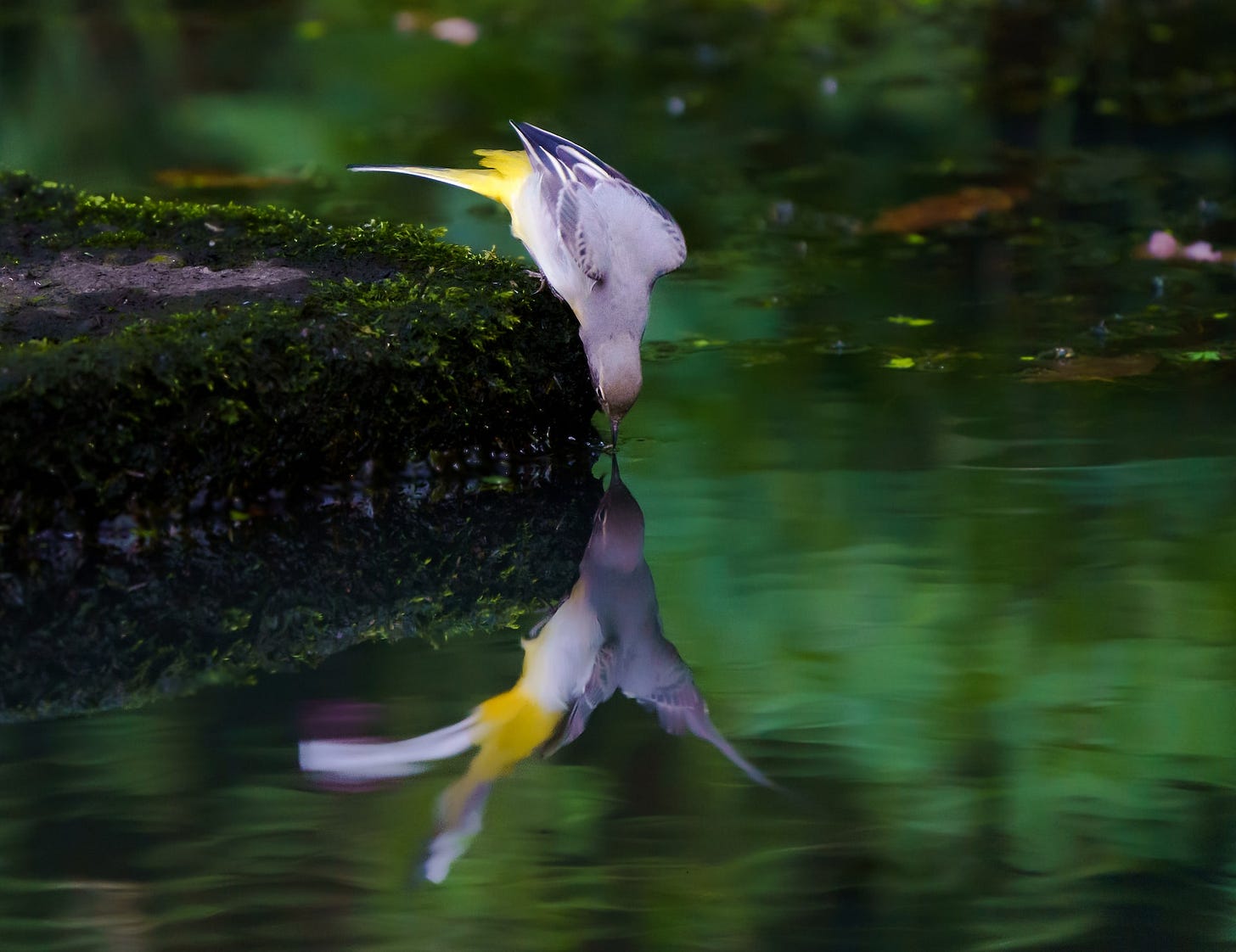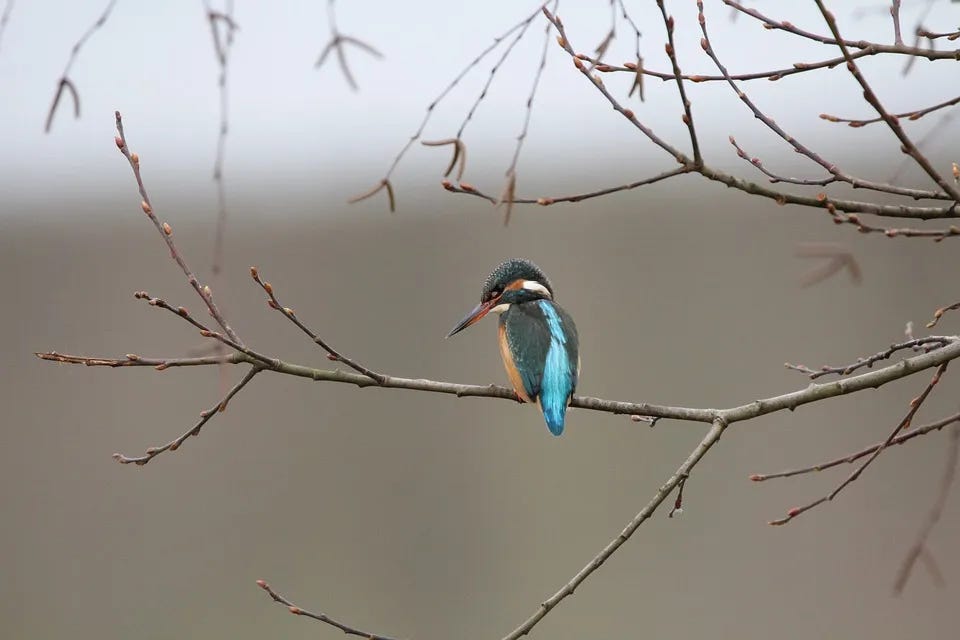Any grey day is better for having a grey wagtail in it.
Bill Oddie dubbed the pied wagtail the Chiswick flyover, ‘Chiswick’ being (something like) the sound they make as they fly over your head.
Grey wagtails have a similar call, but higher-pitched and zingier. Imagine a pied wagtail that’s been sucking on a helium balloon.
Grey wagtails love to call as they fly. Your view will likely be of a slim, pale-bellied bird, with a long tail that seems barely attached to the body.
The wingbeats come in brief, rapid flurries, that coincide with the vocalisations. These are punctuated by moments where the wings are tucked close, and the bird sails through the air like a dart.
Together it makes for a buoyant, undulating flight pattern, each upward motion rallied with one, two or three exclamations of chit.
With that call lodged in your ear, you may be surprised how many grey wagtails you find.
They have a wild side: listen for them beside fast-flowing streams or along the gravelly shorelines of remote upland lakes.
But they are also birds of lowland villages, towns and cities, especially in winter.
Canalsides and duckponds. Farmyard puddles. Concrete-edged reservoirs. Grim culverts. Grey wagtails wag their way across them all.
Even a modest garden water feature might tempt a grey wagtail to bounce in for a while.

As with kingfishers, the aesthetics of the habitat matter rather less than the availability of food.
In the wagtail’s case, the target is tiny invertebrates. They pick them off from the water’s edge, and if that water is warmed or otherwise nutrified by nearby human activity then so be it.
Like anyone who has contemplated one of these brilliant creatures, you may at this point be wondering: who decided that ‘grey’ was the fitting label? Clearly someone was having a glass-half-empty day.
It deserves better. Sulphur-bellied wagtail? River whiteskirts? Water bounder?
Perhaps the Italians have it best for now: Ballerina gialla. Yellow dancer.
Goes well with…
Kingfisher

Read about and listen to the sounds of the kingfisher.
Another year has ended. From this point, Shriek of the Week will be true to its name again: weekly (until the end of June).
As in 2022, we will repeat many of the species, revisiting the common songs and calls, roughly in time with their availability to our ears in the UK. Some new species accounts will appear from time to time. I will update existing posts, where I can see an improvement to be made, or a mistake to be fixed.
For now the archive remains free to all, so you can always catch up on any species that’s been covered (52 so far) since January 2021. The A - Z of shrieks has links to all the latest versions.
What you get for a paid subscription
As before, those supporting Shriek of the Week with a paid subscription will have access to fully narrated versions of each species (including the archive).
Paying supporters also get an invitation to a monthly get-together on Zoom. This will change in format this year. During the winter, we’re going to switch the early morning outdoor calls to evening bird identification masterclasses / Q&A sessions, something like the one we did earlier this month. These should be more fun and helpful (and a little warmer) during the quieter months.
The standard paid level is £5 a month, or £25 a year. If you would really like to participate but the cost is too much of a barrier, I have some free subscriptions available for 2023 - just get in touch to register your interest.
Birdsong Essentials 2023 begins in February
Meanwhile, for those wanting a more immersive experience, the British Birdsong Essentials course begins again on 25 February. This is the best way to learn quickly in a more structured way, with plenty of support and the company of peers.
The standard cost of the course will be £170 (or £225 for two people at the same address), but you can continue to access the course for near-2022 prices (£150 / £205) by using the code SHRIEKOFF when you buy through the Birdsong Academy webstore.
There are also three super-low-cost places available for the February run, so if the standard £ is too much, again please get in touch.
Thanks for your company over the last year. May your 2023 brim with birdsong.
(And suggestions for a better name for the grey wagtail are welcome in the comments).
~ Charlie



